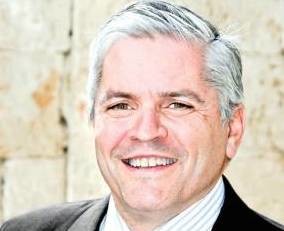Tefillah’s goal is not to change Hashem’s mind
Is there any comfort? It’s been ten years since that terrible summer of 2006 and the Second Lebanon War, and many of us have moved on. But for the families whose loved ones never returned, it is like yesterday; it’s as if their heroes, whose larger than life stories fill our hearts, had only just walked out the door.
Michael Levin is such a hero.
Determined to enlist in the IDF and fulfill his dream of becoming a paratrooper, he entered the draft center through a second floor window to get his papers. (The enlistment officer told him he was sometimes responsible for ensuring draftees did not illegally get out of the army, but had never seen a recruit avoid the guards in order to get in to the army!)
When the second Lebanon War broke out Michael was actually on a long awaited and well-earned leave in California with his family, which he immediately cut short; it was not in his nature to see his comrades go to battle while he stayed home.
Michael indeed fulfilled his dream as a paratrooper, crossing the border into Lebanon to defend his beloved Israel. Thousands of Israelis honored this lone soldier’s sacrifice and hoped that in doing so, they would offer some small comfort to his family.
Here we sit, ten years later. Are there any real words of comfort left?
This Shabbat, we read parsha Va’Etchanan, as we always do on the Shabbat after Tisha B’Av, along with the haftorah that begins with these famous words by Yishayahu (Isaiah): “Nachamu nachamu ami” (“Be comforted, so comforted, my people, says G-d”), giving this Shabbat its name: Shabbat Nachamu, the Shabbat of comfort.
Yet at the beginning of Va’Etchanan, Moshe, in his farewell soliloquy to the Jewish people on the banks of the Jordan River, shares that he begged G-d to be permitted to enter the land of Israel and that G-d denied his request in one of the most tragic vignettes in the entire Torah.
Why would a parsha meant to be comforting to the Jewish people after the commemoration of the destruction of both temples on Tisha B’Av begin with a request denied? How can Moshe’s sharing this tragic ending to his career be comforting?

 48.0°,
Overcast
48.0°,
Overcast 




